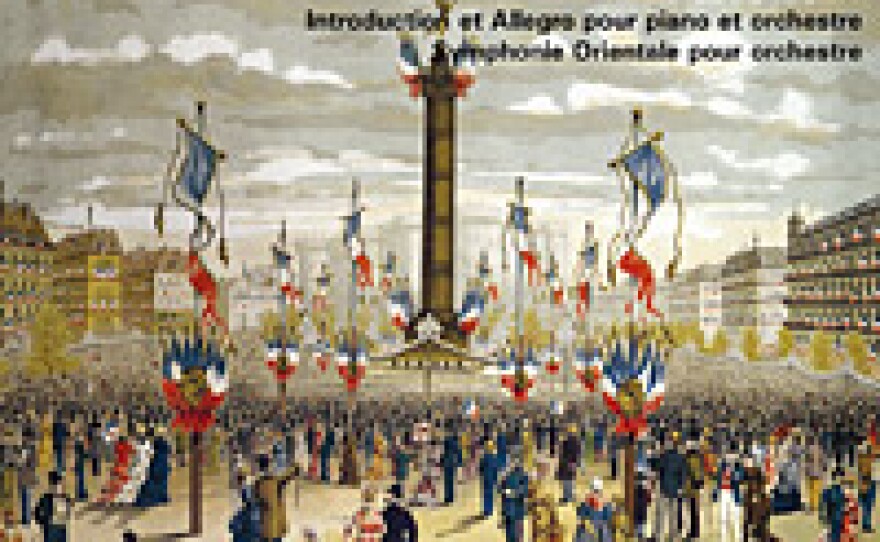Although French composer Benjamin Godard died at the relatively early age of 44 in 1895, he left a significant amount of music, including eight operas, five symphonies and an assortment of chamber pieces. His works for the piano are featured in two of the three symphonic world premiere recordings presented on this new album from the Dutton Epoch label.
The disc opens with the first of his two piano concertos, which is in four movements. The initial sonata form allegro begins with a somber orchestral introduction, after which the piano states a couple of contrasting ideas. These are dramatically developed and recapitulated in virtuosic fashion with a powerful final coda.
A delightfully antsy Mendelssohn-like scherzo follows, and then a pensive andante with a lovely main theme. The spirited final allegro may bring to mind the more flamboyant moments in Saint-Saëns' piano concertos. It's music that grabs the listener's attention and won't let go.
The Introduction and Allegro for piano and orchestra is a magnificent showpiece that must be one of Godard's most engaging works. The stately introduction is powerfully moving, while the allegro has an infectious tune that would double as a terrific circus march.
Godard never numbered his symphonies, preferring to give them evocative titles. The fourth, labeled Symphonie Orientale, concludes the disc. It's a travelogue of sorts, making stops at five Eastern countries, highlighted by those in Arabia, China and Greece.
Arabia, subtitled "The Elephants," seems to take its cue from Borodin's In the Steppes of Central Asia, but with the crossing caravan of camels replaced by a parade of pachyderms. The brilliantly orchestrated China ("Chinoiserie") might be considered the Godard equivalent of Berlioz's Queen Mab Scherzo.
Greece, with the subtitle "Sara la baignuese," (or as some would have it, "Sara in the Bathtub") limns this young lady's lithe aquatic activities in graceful undulating triple time. It anticipates, somewhat, the "Valse of the Gemini" in Constant Lambert's Horoscope ballet.
Italian pianist Victor Sangiorgio plays the two concertante works to perfection, deftly handling Godard's idiosyncratic and rhythmically segmented melodies. And the Royal Scottish National Orchestra under conductor Martin Yates provides him with ideal support. They make a strong case for all of this little-known music, giving it that extra je ne sais quoi which turns something good into something extra special.
Bob McQuiston revels in under-the-radar repertoire at his website Classical Lost and Found.
Copyright 2022 NPR. To see more, visit https://www.npr.org.





